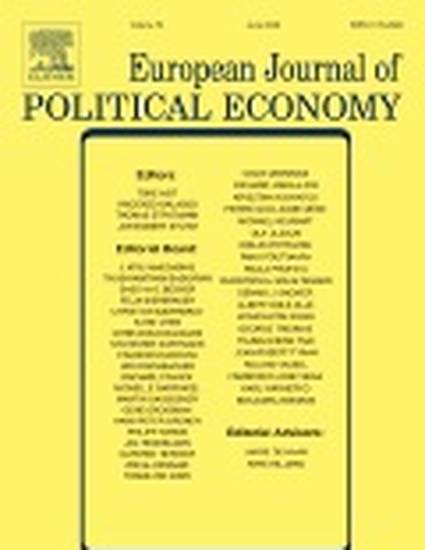
Article
Why do people from wealthy countries migrate?
European Journal of Political Economy
(2022)
Abstract
This study estimates the role of governance and institutions in bilateral migration between countries in the Organization of Economic Cooperation and Development (OECD) over the period 1996 to 2016. We estimate an extended random utility model of migration using pooled OLS, fixed effects, 2SLS, and PPML estimators. Our findings indicate that institutional quality plays a significant role in bilateral migration between the OECD countries. Political institutions are found to play a more important role compared to economic institutions. We also examine the moderating role of migration policy in fostering the nexus between the quality of institutions and bilateral migration, using three measures: the Migration Policy Index (MPI), and sub-sample analyses using both top OECD to OECD migration destinations and Schengen area countries. The Schengen country specific sub-sample analysis shows that if migration barriers are withdrawn, bilateral institutional quality differences lead to higher migration. However, estimated results based on the MPI and top OECD to OECD migration destinations do not show a significant role for pro-migration policy in strengthening the relationship between institutions and migration.
The results are robust to different estimation methods, sub-sample analyses, and alternative specifications of the empirical model.
Keywords
- Random utility model,
- Quality of political and economic institutions,
- Bilateral migration,
- OECD countries
Disciplines
Publication Date
Spring June 1, 2022
DOI
https://doi.org/10.1016/j.ejpoleco.2021.102156
Citation Information
Nusrate Aziz, Murshed Chowdhury and Arusha Cooray. "Why do people from wealthy countries migrate?" European Journal of Political Economy Vol. 73 (2022) Available at: http://works.bepress.com/nusrate_aziz/44/
